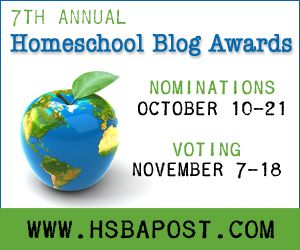By Brian D. Ray, Ph.D., President, National Home Education Research Institute
Parent-led home-based education continued to be common, if not the norm, for most of the time for most children’s lives through the nineteenth century. Things changed quickly, however, during the late 1800s and into the twentieth century. Homeschooling was nearly non-existent, perhaps only 13,000 schoolchildren in the United States by the 1970s.1 Then a stunning change began around the early 1980s such that just over 2 million students in grades K to 12 were estimated to be homeschooled in the United States during the spring of 2010.2
Much of public opinion is very positive toward this private educational practice. However, genuinely curious people and ideological skeptics and opponents of homeschooling continue to ask questions about home-based education. Research continues to answer some of these basic questions.
Academic Achievement: How Do They Score?
Major nationwide studies and multiple smaller-scale studies are consistent in their findings that the home educated are performing above average in terms of academic achievement. The most recent nationwide study (conducted by Dr. Brian Ray and the National Homeschool Education Research Institute) found that home-educated students in grades K to 12 were scoring well above public-school students in all subject areas—reading, language, mathematics, social studies, and science—on standardized academic achievement tests.3 Ray’s findings are in concert with those of the preceding nationwide study done by Dr. Lawrence Rudner.4 In repeated studies, home-educated students typically score at the 65th to 80th percentile on nationally normed standardized achievement tests. This is 15 to 30 points higher, on average, than public-school students, whose average is the 50th percentile
Questions About Achievement Research
A number of valid questions arise about research on homeschool student achievement. For example, do only the children of wealthier parents do well? No, regardless of the homeschool family’s income, they tend to score well above the public school average. In public schools, however, income is strongly correlated with student achievement.
Second, do home-educated children of certified teachers do better than the others? No, the teacher-certification status of the parents has very little or no relationship to the students’ scores. While nearly all public-school teachers have government teaching certificates and only about 10 percent of homeschool parents have ever had such certificates, homeschool students consistently outperform public-school students.
Home-educated students whose parents are high school graduates (with no additional formal education) are scoring above the general national average on achievement tests. On the other hand, public-school students with similarly educated parents score below the national average.
A fourth question is this: Are only the “best homeschool students” being tested and therefore the “average score” is high? It is difficult in social science research, such as that on homeschool families, to be sure that perfectly representative samples are involved. There are several pieces of evidence, however, that the finding of high achievement applies to the population in general. For example, in Ray’s nationwide study, he found that both students whose parents knew their scores before participating in the study and those who did not know their scores were performing well above average.5 Furthermore, in states where all homeschool students are required to be registered with the government and be administered academic achievement tests, their scores have consistently been well above the public-school average.6
These findings naturally lead to one more question about research on achievement: Is government control related to high academic achievement? Research has repeatedly shown that there is no correlation between the degree of state regulation or control of homeschooling and homeschool students’ achievement.7 Many have argued that the government needs to regulate this form of private education to make sure children learn. No research evidence supports this claim. Home-educated children in states with low regulation score just as well as those in high-regulation states. Regardless of high or low regulation, their scores are above the public-school average. Furthermore, research by Dr. Brian Ray and Dr. Bruce Eagleson found no relationship between the degree of state control over homeschooling and home-educated students’ scores on the SAT college-entrance exam.8
What About Socialization?
Now thirty years into the modern home-education movement, homeschool parents still hear the question, What about socialization? The term socialization is usually not well defined and often refers to a perceived negative that home-educated students are not attending institutional classroom schools with same-age peers for thirteen to seventeen years of their lives and experiencing the peer pressure and collective milieu found in those settings. Multiple researchers and their studies repeatedly find, however, the home educated to be developing as well or better socially, emotionally, and psychologically than institutionally schooled children and youth.9
Research time and again finds that homeschool students and their parents are very engaged in their communities, including activities such as sports teams, co-operative classes, church activities, and community service. Further, homeschool children typically interact with a broader range of ages (of children and adults) than do most institutional school children.
Why Are the Home-Educated Doing So Well?
Recurring positive research findings associated with homeschooling beg the question, Why are they doing so well? As a man who has taught in public and private schools, served as a university professor at the undergraduate and graduate levels, tutored children and youth in a variety of settings, and been a student himself, the author poses series of questions, and answers, that might explain why the home educated do so well.10 Ask any “professional educator” the following questions:
1. How would you like a class size of 3 to 6?
2. Would you like to be able to individualize or customize the curriculum and pedagogical approach for each of the students, according to his or her talents, needs, desires, and dreams?
3. How would you like it if you could essentially tutor each one of your students?
4. Would you like it if you could depend on the student mastering the knowledge or skill before moving on?
5. Would you enjoy being able to be flexible and change the curriculum or pedagogy if needed?
6. What if you regularly had time to stop for the teachable moment?
7. What if there were essential value consistency between you and your students, or their parents?
8. Would it be beneficial to have large amounts of social capital—for example, trust and love—in your classroom?
9. How would you like it if the biggest distraction during your day was, typically, a 7-year-old arguing with a 10-year-old about whose turn it is to wash the dishes?
10. How would you like it if you almost always had time to thoughtfully and carefully work out, according to a solid and dependable philosophical framework, with each student how to face dilemmas, challenges, issues, temptations, and difficult relationships in life?
11. What if you cared so much about, loved each of your students so much, that you would teach for free (i.e., no “salary and benefits”) all next year?
Do all of these opportunities that are naturally systemic to home-based education mean all parents will fully take advantage of all of them? Not necessarily. It appears, however, that most parents and teens are putting the potentials to good use.
But How Will They Do in the “Real World” of Adulthood?
Dr. Ray’s study of over seven thousand adults in the United States who had been home educated was the first large-scale study suggesting graduates of homeschooling are doing well.11 For example, this study found those who had been homeschooled are more civically engaged than other adults, shown by the fact that they vote; attend public meetings; write or telephone editors and public officials; participate in protests and boycotts; contribute money to political candidates, parties, and causes; and work for political candidates, parties, and causes at a higher rate than do their American adult peers. The newest research on adults who were home educated also reveals positive findings. Dr. Michael Cogan found that college students who are homeschooled earn higher first-year and fourth-year GPAs when controlling for demographic, pre college, engagement, and first term academic factors.12 The body of research on homeschool graduates is still relatively small but is revealing positive things associated with home education.
Who Homeschools and Why Do They Do It?
Research continues to show that home educators are from all social and racial/ethnic backgrounds: parents with a tenth-grade education, others with Ph.D.s; the wealthy and the less well-off; agnostics, Christians, humanists, Jews, Mormons, Muslims, and New Age devotees; families with eight children and those with one; married couples and single parents; those in the inner city and those in the wilderness of Alaska; sales clerks, public school teachers, doctors, and plumbers; and parents who never stopped being the main and daily educators of their 15-year-old son from his birth, and parents who removed their daughter during the seventh grade from an institutional school setting.13
Every year the variety of home educators broadens and expands. Research published by the U.S Department of Education, for example, discovered that 23 percent of home-educated students in the spring of 2003 were black/non-Hispanic, Hispanic, or “other,” while families from such minority groups were much rarer in homeschool groups about a decade earlier.14 The main reasons for homeschooling are to (a) customize or individualize each child’s education, (b) accomplish more academically than in an institutional school, (c) provide a safe learning environment, (d) offer consistently parent-guided social interaction, (e) enhance strong family ties, and (f) transmit the values, beliefs, and worldview of the parents rather than those of the public-school system or of others. The last reason—the philosophical and political one—naturally leads to the next section of this article.
Academic and Policymaker Angst Over Home-Based Education
Despite consistent and broad research evidence that homeschooling is associated with positive outcomes, behaviors, and traits, it appears an increasing number of academics and policymakers are expressing concerns about parent-led education. For example, Dr. Rob Reich clearly implied that the home educated will not be as decent, civil, or respectful as state-schooled students.15 Dr. Christopher Lubienski claimed the following: “The accelerated movement toward home schooling reflects a serious threat to the collective good . . .”16 More recently, Dr. Kim Yuracko expressed that there should be more discussion about whether and how “. . . a liberal society should condone or constrain homeschooling, particularly as practiced by religious fundamentalist families explicitly seeking to shield their children from liberal values of sex equality, gender role fluidity and critical rationality.”17 Further, she argued “. . . that states must check rampant forms of sexism in homeschooling so as to prevent the severe under-education of girls by homeschooling parents who believe in female subordination.” In 2008, Dr. Reich argued for more state control over home education to protect his posited interests of the state, the parents, and the children in the education of children.18
On a related note, it seems more policymakers are willing to explicitly allege that too many parents use homeschooling as a way to hide evil actions against their children and that a major purpose of schools or school laws is to keep all children under the eye of the state and to try to “catch bad people” before they commit evil deeds. For example, some in Florida recently suggested law or policy might need to be changed regarding homeschooling because some parents allegedly pulled their children out of public school so they could hide their abuse.19 Many persons miss, however, two major points here. First, the Florida Department of Children and Families already knew about the matter and admits that it needs to work to repair the “. . . total systematic failure of the child welfare system.”20 Second, in a free nation, education or schooling laws, if they should exist at all, should be used to encourage literacy in citizens and should not be used as pre-emptive dragnets to control families’ lives in order to try to detect or catch “evil people” before they do bad things.
Most of the arguments against home education or for state control over private home education also essentially ignore three things. First, there is no empirical research evidence to support their claims that homeschooling causes or will cause negative effects for individuals or for society. Second, pushing for state control does not truly give the child more control or protect his rights more; it simply gives the state more power than either the parent or child and gives the state ultimate power over the child. Third, a nation like the United States that considers the people “free,” is a constitutional republic based on Biblical Scriptural concepts, and considers parents able to freely conduct their families’ lives unless there is compelling evidence that they are harming their children should not be considering ways to infringe on parents’ fundamental right to direct the education and upbringing of their children.21
In Sum
Research continues to show very positive outcomes and behaviors related to homeschooling. Although research on home-based education does not cover all possibilities and nuances to be considered in scientific endeavors, no empirical evidence exists that homeschooling is generally harming children or society. Finally, research cannot answer the question, Should parents nurture and educate their children in the context of parent-led home-based education as the norm? Ultimately, only divine revelation can properly answer that.
Brian D. Ray is an internationally known scholar and president of the nonprofit National Home Education Research Institute in Oregon, U.S.A. (www.NHERI.org). He earned his Ph.D. in science education from Oregon State University, M.S. in zoology from Ohio University, and B.S. in Biology from the University of Puget Sound. He has been a professor of science and education at the undergraduate and graduate levels, has been a classroom teacher in both public and private schools, and has taught homeschool students. Dr. Ray does research and speaking internationally and provides expert testimony to legislators and in courts that focus on homeschooling (home-based education, home education, home schooling) research and pedagogy.
Endnotes:
1. Lines, Patricia M. (1991, October). “Estimating the Home Schooled Population” (working paper OR 91-537). Washington DC: Office of Educational Research and Improvement, U.S. Department of Education.
2. Ray, Brian D. (2011). 2.04 “Million Homeschool Students in the United States in 2010.” Salem, OR: National Home Education Research Institute. Retrieved 1/7/2011 online www.nheri.org/HomeschoolPopulationReport2010.pdf.
3. Ray, Brian D. (2010, February 3). “Academic Achievement and Demographic Traits of Homeschool Students: A Nationwide Study.” Academic Leadership Journal, 8(1). Retrieved February 10, 2010 from Academy Leadership. Also see research at www.nheri.org.
4. Rudner, Lawrence M. (1999). “Scholastic Achievement and Demographic Characteristics of Home School Students In 1998.” Educational Policy Analysis Archives, 7(8), and retrieved 1/21/2010 from epaa.asu.edu/ojs/article/viewFile/543/666.
5. Ray, 2010, see above.
6. Oregon Department of Education [Office of Student Services]. (1999, May 20). “Annual report of home school statistics” [1998-99]. Salem, OR: Author. Also retrieved 7/14/2010 from www.ode.state.or.us/search/page/?id=2081. Tennessee Department of Education. (1988). “Tennessee Statewide Averages, Home School Student Test Results, Stanford Achievement Test, Grades 2, 5, 7 and 9.” Nashville, TN: Author.
7. Ray, 2010, see above. Ray, Brian D. (2000). “Home Schooling: The Ameliorator of Negative Influences on Learning? Peabody Journal of Education, 75(1 & 2), 71-106. Ray, Brian D. (1997). Strengths of Their Own: Home Schoolers Across America: Academic Achievement, Family Characteristics, and Longitudinal Traits. Salem, OR: National Home Education Research Institute (www.nheri.org).
8. Ray, Brian D., and Eagleson, Bruce K. (2008, August 14). “State Regulation of Homeschooling and Homeschoolers’ SAT Scores.” Journal of Academic Leadership, 6(3). Retrieved December 7, 2010 from Academy Leadership.
9. Medlin, Richard G. (2006). “Homeschooled Children’s Social Skills.” Home School Researcher, 17(1), 1-8. A summary of research on this topic may be found in the following: Ray, Brian D. (2009). Home Education Reason and Research: Common Questions and Research-Based Answers. Salem, OR: National Home Education Research Institute, available at www.nheri.org.
10. The author presented many of these points in Ray, 2010 (see above); Ray, Brian D. (2000). “Home Schooling: The Ameliorator of Negative Influences on Learning?” Peabody Journal of Education, 75(1 & 2), 71-106; and, Ray, Brian D. (1997). Strengths of Their Own—Home Schoolers Across America: Academic Achievement, Family Characteristics, and Longitudinal Traits. Salem, OR: National Home Education Research Institute (www.nheri.org).
11. Ray, Brian D. (2004). Home Educated and Now Adults: Their Community and Civic Involvement, Views About Homeschooling, and Other Traits. Salem, OR: National Home Education Research Institute.
12. Cogan, Michael F. (2010, Summer). “Exploring Academic Outcomes of Homeschooled Students.” Journal of College Admission, Summer 2010, 18‑25.
13. Ray, 2010, see above.
14. United States Department of Education. (2009). “Homeschooled Students.” (Participation in Education, Elementary/Secondary Education, Indicator 6, 2009). Retrieved January 19, 2010 from nces.ed.gov/programs/coe/2009/section1/indicator06.asp#info.
15. Reich, Rob. (2002). “The Civic Perils of Homeschooling.” Educational Leadership, 59(7), 56-59.
16. Lubienski, Christopher. (2003, January 17). “Does Homeschooling Promote the Public Good?” CQ Researcher [Congressional Quarterly], 13(2), p. 41.
17. Yuracko, Kim. (2007, April 14). “Education Off the Grid: Constitutional Constraints on Homeschooling.” Northwestern University School of Law, Northwestern Public Law Research Paper No. 07-11. Retrieved April 29, 2008, from papers.ssrn.com/sol3/papers.cfm?abstract_id=980100n.
18. Reich, Rob. (2008). “ Regulating Homeschooling: A Reply to Glanzer.” Educational Theory, 58(1), 17-23.
19. Lawrence, David, Jr., Martinez, Roberto, & Sewell, James. (2011, March 10). The Nubia Report: The Investigative Panel’s Findings and Recommendations. Retrieved March 16, 2011, from DCF State
20. Retrieved March 16, 2011, from DCF State.
21. Florida Department of Children and Families. (2011). Barahona case. For more information, see www.ParentalRights.org.
Copyright © 2011 by Brian D. Ray. Used with permission. All rights reserved by author. Originally appeared in The Old Schoolhouse® Magazine, Summer 2011.
Visit The Old Schoolhouse® to view a full-length sample copy of the magazine especially for homeschoolers. Click the graphic of the moving computer monitor on the left. Email the Publisher at Publisher@TheHomeschoolMagazine.com.


























No comments:
Post a Comment